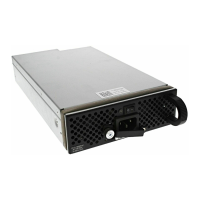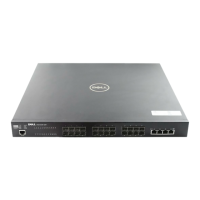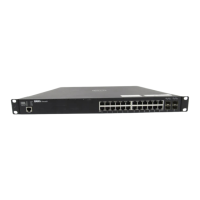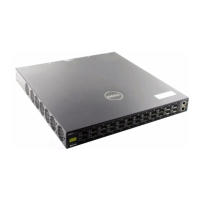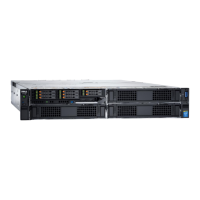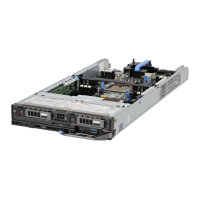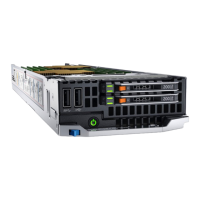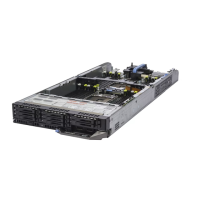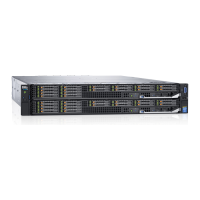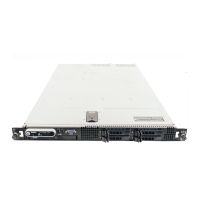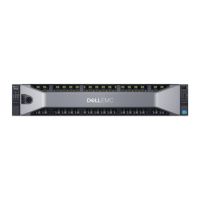418 | Quality of Service (QoS)
www.dell.com | support.dell.com
Set dot1p Priorities for Incoming Traffic
Change the priority of incoming traffic on the interface using the dot1p-priority command from
INTERFACE mode (Figure 24-2). The Dell Force10 operating software (FTOS) places marked traffic in
the corresponding queue as shown in Table 24-2. If you set a dot1p priority for a port-channel, all
port-channel members are configured with the same value. You cannot assign a dot1p value to individual
interfaces in a port-channel.
Figure 24-2. Configuring dot1p Priority on an Interface
Honor dot1p Priorities on Ingress Traffic
By default, FTOS does not honor dot1p priorities on ingress traffic. To honor dot1p priorities on ingress
traffic, use the
service-class dynamic dot1p command from INTERFACE mode (Figure 24-3). You can
configure this feature on physical interfaces and port-channels, but you cannot configure it on individual
interfaces in a port channel.
FTOS Behavior: The MXL Switch distributes eight dot1p priorities across four data queues.
Table 24-2. dot1p-priority values and queue numbers
dot1p Queue Number
00
10
20
31
42
53
63
73
Note: The dot1p-priority command marks all incoming traffic on an interface with a specified dot1p priority
and maps all incoming traffic to the corresponding queue (Table 24-2). When you enable PFC and/or ETS
on an interface, incoming traffic with a specified dot1p priority can be distributed across different queues.
Therefore, when you use PFC and ETS to manage data center traffic, it is not recommended that you use
the dot1p-priority command to set a queue assignment. See Data Center Bridging (DCB) for more
information.
FTOS#config
FTOS(conf)#interface tengigabitethernet 1/0
FTOS(conf-if)#switchport
FTOS(conf-if)#dot1p-priority 1
FTOS(conf-if)#end
FTOS#
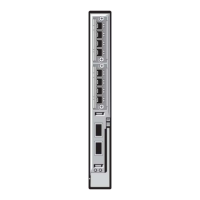
